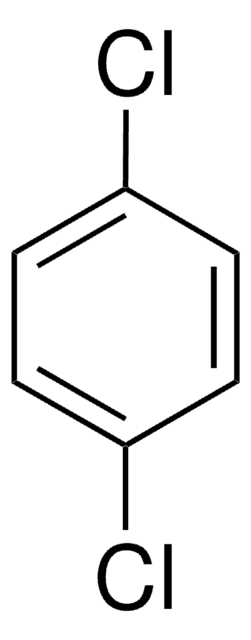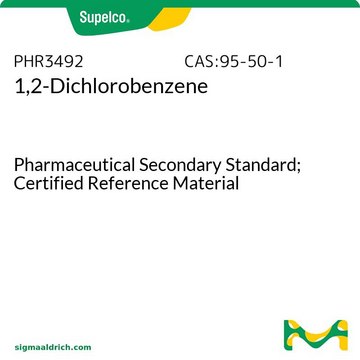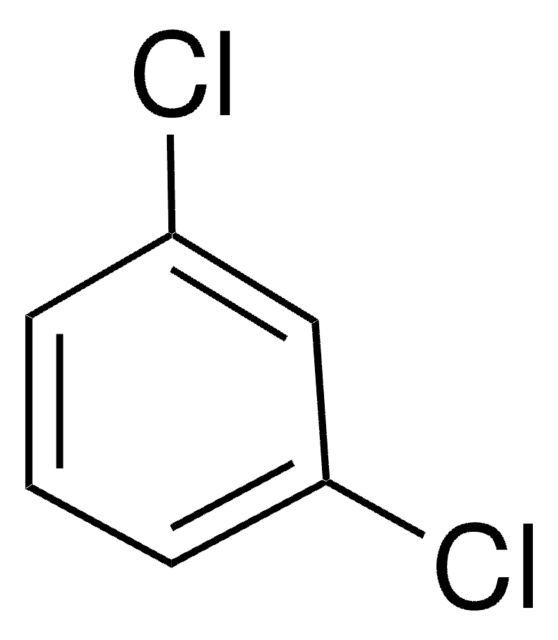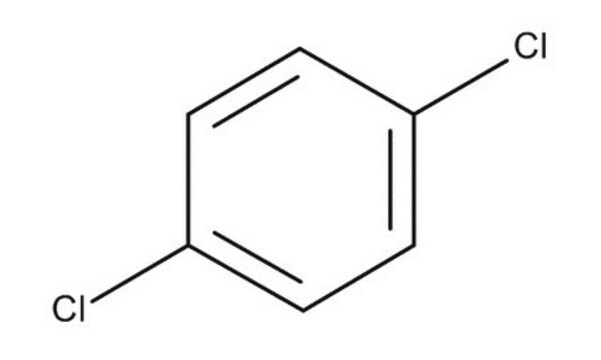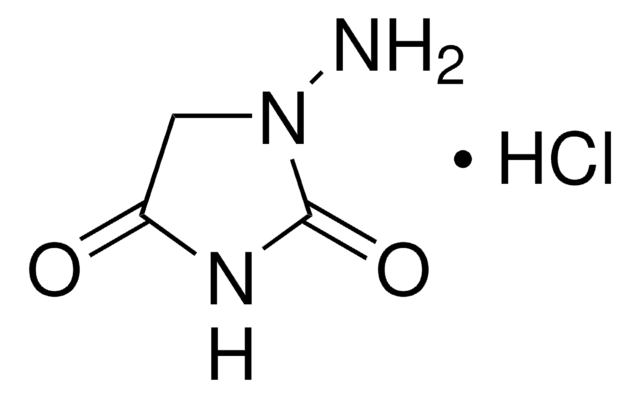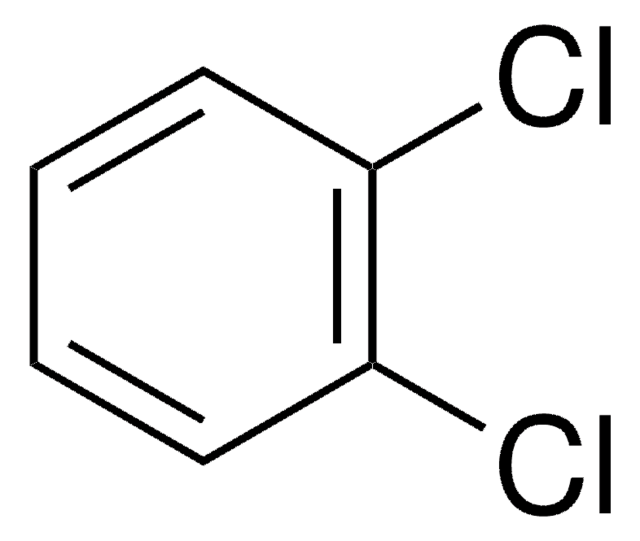40025
1,4-Dichlorobenzene solution
certified reference material, 5000 μg/mL in methanol
About This Item
Recommended Products
grade
certified reference material
TraceCERT®
Quality Level
product line
TraceCERT®
CofA
current certificate can be downloaded
packaging
ampule of 1 mL
concentration
5000 μg/mL in methanol
technique(s)
HPLC: suitable
gas chromatography (GC): suitable
application(s)
agriculture
cleaning products
cosmetics
environmental
food and beverages
personal care
format
single component solution
storage temp.
2-8°C
InChI
1S/C6H4Cl2/c7-5-1-2-6(8)4-3-5/h1-4H
InChI key
OCJBOOLMMGQPQU-UHFFFAOYSA-N
Looking for similar products? Visit Product Comparison Guide
General description
Application
Other Notes
Legal Information
Not finding the right product?
Try our Product Selector Tool.
signalword
Danger
Hazard Classifications
Acute Tox. 3 Dermal - Acute Tox. 3 Inhalation - Acute Tox. 3 Oral - Aquatic Chronic 3 - Flam. Liq. 2 - STOT SE 1
target_organs
Eyes
Storage Class
3 - Flammable liquids
wgk_germany
WGK 1
flash_point_f
51.8 °F - closed cup
flash_point_c
11 °C - closed cup
ppe
Eyeshields, Faceshields, Gloves
Certificates of Analysis (COA)
Search for Certificates of Analysis (COA) by entering the products Lot/Batch Number. Lot and Batch Numbers can be found on a product’s label following the words ‘Lot’ or ‘Batch’.
Already Own This Product?
Find documentation for the products that you have recently purchased in the Document Library.
Protocols
GC Analysis of Xylene Isomers on SLB®-IL60 - The cresol (methylphenol) isomers are also precursors to many chemicals. This chromatogram of a mix of aromatic and methylphenol compounds was generated using an SLB-IL60 ionic liquid column. Its interaction mechanisms allow the separation of all three xylene isomers, and all three cresol isomers.
US EPA Method TO-17: GC Analysis of Volatiles on VOCOL® after Collection/Desorption using Air Toxics Tube
US EPA Method 8260 describes the analysis of volatile organic compounds in solid wastes and ground waters. This application illustrates the analysis of many compounds commonly analyzed by this method using purge and trap coupled to GC-MS.
Our team of scientists has experience in all areas of research including Life Science, Material Science, Chemical Synthesis, Chromatography, Analytical and many others.
Contact Technical Service